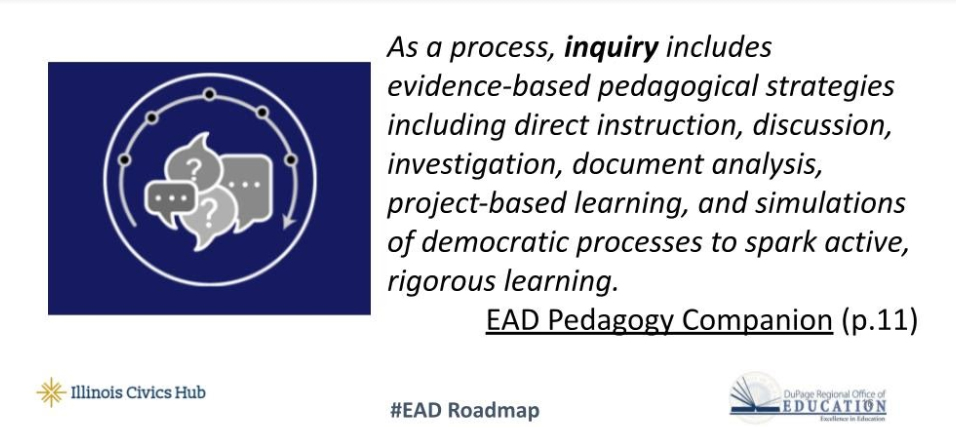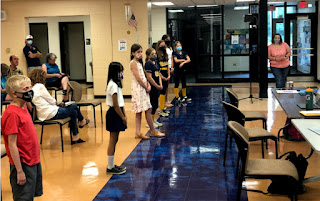What is Constitutional Democracy?

by Mary Ellen Daneels, Civics Instructional Specialist This week, the Illinois Civics Hub foray into the themes of the Educating for American Democracy (EAD) Roadmap featured Dr. Emma Humphries and Natacha Scott from iCivics who unpacked how the EAD Roadmap can help inform instruction around the question, “What is Constitutional Democracy? This question hails from Theme 4 - A New Constitution and A New Government in the Roadmap. The question of how to define the form of government in the United States is an enduring one that spans from the founding to the present. The webinar opened with the poll question below. How did you respond? The question was one that the authors of the EAD Roadmap themselves wrestled with, landing on the term “Constitutional Republic” because: But as the Declaration of Independence makes clear, self-government depends on both liberty and equality. It is, after all, the work of free and equal citizens. It requires both order and participat...







